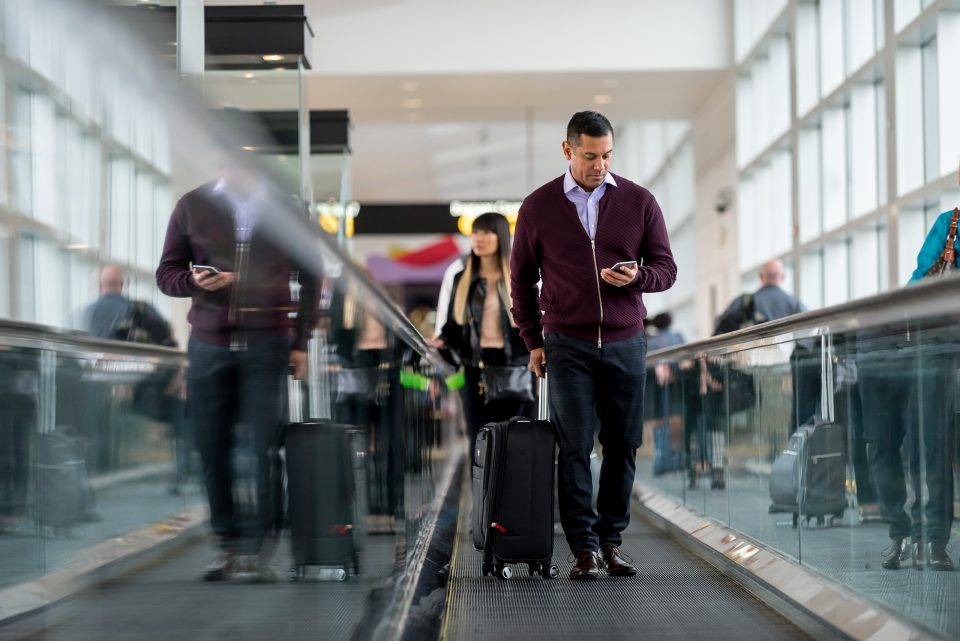Once corporate travel managers book trips for team members, they must share the information with the traveler. Plus, managers must keep records of the trip during the travel dates and afterward for the archives.
The business world requires meticulous record-keeping for finance and auditing purposes. For example, travel managers must audit expense reports when travelers return to the office. Then, managers must balance their books and corporate travel budget.
Thus, company travel planners benefit from establishing processes that efficiently allow them to run checks and balances on every business trip.

Granting Access to the Details
Managers also need to keep the information handy in case an emergency arises. Some companies simultaneously have several team members on the road, especially if they have road warrior sales teams.
Opportunities can arise, and the company can capitalize on them if a sales professional is already in the area.
Thanks to technology, travel planners can store trip details in several places and keep them organized. For example, planners can store the information on physical documents and files and in PDF format.
Then, managers can grant access to the appropriate team members, especially the traveler.
The following are seven ways to store the details of an upcoming business trip.
1. Third-Party Service
Although corporate travel managers work in-house, they can work with third-party services to book travel. Services like Hotel Engine help managers find hotel deals and reviews more efficiently.
Third-party platform services make busywork easier. Then, the platforms automate tasks and allow users to compile reports. Therefore, travel planners can use the service as a storage backup option.
2. Email
Email remains the most popular communication tool among business professionals. Therefore, it makes sense to use email to send it to traveling team members.
Moreover, email inboxes act as a storage method, and corporate travelers can easily access them on laptops and smartphones.
Corporate travel managers who pick email to deliver business trip details to travelers must add a layer of protection.
Since hackers have hacked email inboxes, companies must install the proper security measures to protect electronic communication.
Corporate travel managers must treat trip information as sensitive data. Therefore, they can add another layer of security by emailing their teams the information in an attachment.
3. PDF File
Most business travelers pack their smartphones and laptops for trips. Thus, team members can easily access their email and electronic documents.
After sending PDF files to team members, travel managers can organize them by strategically naming them and placing each in folders.
4. In Apps
Most hotels, ground transportation providers, airlines, and restaurants operate an app that makes booking reservations easier for guests.
Since apps store reservation information, they are another way to store travel information.
Moreover, they also store receipts and payment information that helps travelers complete their expense reports.
5. The Cloud
Companies continue storing essential documents, operations, and information in The Cloud. Coupled with solid security measures, it’s a convenient solution with a centralized location.
Then, travel planners can download the reports as needed onto their computers and other electronic devices.
6. Software
Travel management software has gained steam among planners and managers. The software is similar to accounting, bookkeeping, and customer relationship management platforms that streamline tasks in a centralized, online platform.
After picking up the software and installing it, set up your preferences. Then, the software will allow you to automate tasks and compile reports based on needed information.
The data remains stored on the platform, allowing easy future access.
7. Physical Documents
It might sound dated, but store trip details in physical documents too. Smartphones run out of charge unexpectedly, and power outages can occur without warning.
Physical documents serve as an alternative to electricity-dependent devices. Keep physical copies in the office and hand another to traveling team members. Then, travelers can keep their copy on their person or in a bag for easy access.
Plus, travelers can make notes or changes on their copies.
Conclusion
A corporate travel manager’s job doesn’t end after they book trips; it’s just the beginning. After booking the details of every trip, store the information in your preferred method, which might include physical documents, third-party service, and The Cloud. The trick is to pick a method that allows easy access during audits and distribution.